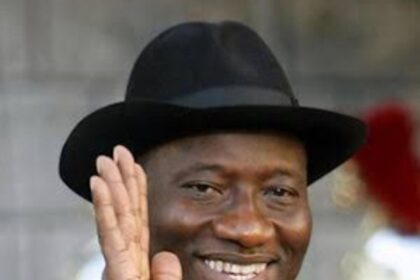Billionaire moguls and captains of industry President Buhari cannot do without
By Femi Ajayi
Nigeria, like a lovelorn bitch, lives for the adoration of deities. That is why she fetes and fortifies supermen or manmade gods with outrageous waivers and policies, as the circumstances demand. Nigeria therefore, may be illustrated by a simple dynastic arrangement into three divides: the ruling class, gods controlling the ruling class and the commoners.
The commoners may have voted for President Buhari, but despite their expectations of ‘change’ as promised by the ruling All Progressives Congress (APC), Nigeria is still at the mercy of certain businessmen and political tin gods whose whims determine the trajectory of the incumbent leadership.
These men are institutions on their own. Besides their intimidating wealth and fluorishing business concerns, they jointly constitute a formidable force in any political clime. Having attained great wealth and eminence by dint of hard work, initiative and perseverance, they have become so entrenched in the socioeconomic and political systems that they have become systems on their own, with the capacity to exert considerable influence or pressure on the virtually every sector in the country with interesting results.
These men enjoy the best of a charmed life. While their business interests extends beyond the country’s shores, they also own impressive capital projects, residences and property in the most exclusive neighbourhoods at home and abroad.
It took President Buhari however, a great deal of maturity to accept the bitter truth of their significance as partners to the success of his administration and thus review his approach to governance and relationship with these powerful individuals. Until he acknowledged their influence, supporters of President Buhari swore that he would deal with them and cut everyone of them to size. Among measures cited as part of the president’s bid was his recent cancellation of the oil swap arrangement instituted by the immediate past administration of President Goodluck Jonathan and his Petroleum Minister, Diezani Alison-Madueke. The measure was allegedly taken by Buhari to sanitize the oil industry and reduce the clout and financial might of major oil tycoons in the country. All offshore crude oil processing agreements and crude oil swap deals for refined petroleum products between the Nigerian National Petroleum Corporation (NNPC) and oil traders around the world were cancelled by the Federal Government.
However, soon after their cancellation, the NNPC, at the directive of President Buhari, requested that selected oil magnates present fresh bids for the evacuation of Nigeria’s crude oil equity from the various crude and condensate production platforms. The number of intended beneficiaries of the proposed 2015/2016 term contracts, which would emerge after a planned rigorous competitive bid had been pruned from 43 to 16. Yet the government extended invitation to billionaire oil magnate, Femi Otedola’s Forte Oil, Mobil and few other companies affected by the cancellation of the deal announced earlier in month. Already, Wale Tinubu, boss of Oando Oil and All Progressives Congress (APC) leader, Bola Tinubu, are allegedly enjoying preferential treatment by the deal. Also the likes of Tunde Ayeni and the nouveau riche constituted by the so-called young oil Turks that dominated the nation’s oil sector are back in business under President Buhari.
Making a radical u-turn from his earlier stance, President Buhari lifted a ban prohibiting 113 tankers from operating on Nigeria’s territorial waters. The president issued a directive allowing the entry of incoming ships subject to a guarantee that they “will not be utilised for any illegal activity whatsoever.”
In July, the president’s office issued the ban with little explanation. But it was widely assumed to be part of the new administration’s pledge to root out corruption and oil theft that has resulted in tens of billions of dollars in revenues failing to make their way into state coffers.
Punidts have speculated about Buhari’s reason for banning the tankers claiming that by his decision, Nigeria was mostly hindering itself from getting the best price for its oil. Consequently, a lot of the ship owners whose vessels were on the list and were keeping their entire fleets out of Nigerian waters are now back in operation.
Outside the oil sector, in the banking sector to be precise, the likes of Tony Elumelu, Chairman of United Bank of Africa (UBA), Jim Ovia, Chairman, Zenith Bank among others, still hold sway as major forces to reckon with in the interplay of high-wired finance and politics.
From all indications, the change promised by President Buhari was never meant to antagonize the nation’s superrich businessmen and captains of industry. If it was intended to, the president seems to have attained a better understanding about the workings of Nigeria’s high-wired business and politics. Pundits believe that President Buhari now appreciates the need to accommodate the captains of industry and billionaire moguls on whose success the nation’s economic survival depends.



